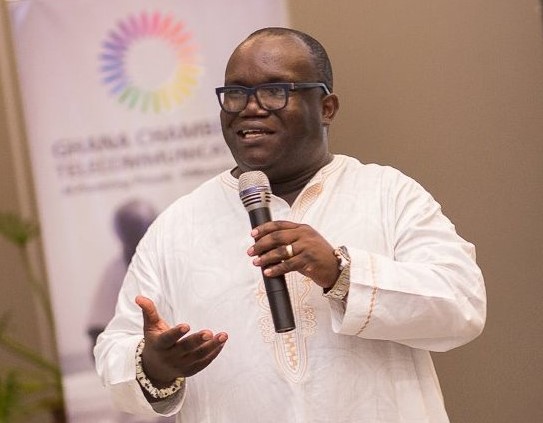The Ghana Chamber of Telecommunications has released a study indicating that the total tax contributions made by the telecommunication industry to support the socioeconomic development of the country in 2019 was GH¢3.2 billion.
This figure represents approximately 9.5% of Ghana’s annual total revenue basket.
Key highlights from the study shows Communication Service Tax (CST) was GH¢414 million; Value Added Tax (VAT), GH¢480 million; Corporate Income Tax (CIT), GH¢832 million; Withholding Tax (WHT), GH¢415 million; Import Duties, GH¢210 million and National Fiscal Stabilization Levy (NFSL) was GH¢71 million.
The Surcharge on International Incoming Traffic (SIIT) was GH¢107 million in 2019. SIIT is the quantum of six cents per every minute of call that comes from overseas into the country.
Mobile Network Operators pay that to the National Communications Authority (NCA), the industry Regulator. There is also the pay-as-you-earn (PAYE) tax, which stood at GH¢96 million and finally the National Fiscal Stabilisation Levy (NFSL), which is GH¢71 million.
NFSL was introduced in 2013 to stabilise the economy over a period of 18 months, ending December 2015. This tax has continuously been renewed.
The study also shows the mobile industry widely provides 6,700 direct jobs and over 1.8 million indirect jobs, contributing 2.93% to (Non-oil) GDP, and invested GH¢1.55 billion in capital expenditure within the fiscal year 2019.
The Telecoms Chamber noted that, in spite of the heavy tax burden, the telecoms industry continues to commit investible funds into capital expenditure to meet customer service quality and experience needs.
“CAPEX investment has increased exponentially in the fiscal year, however there is the need for policy to support and enable even more investment by all players into the ecosystem to meet customer demand for mobile services”, said Dr. Ing. Kenneth Ashigbey, CEO of the Chamber.
The mobile industry believes that policy enablers such as tax reforms, tax rebates in relation to import of infrastructure and equipment’s could improve the affordability of mobile technology and services for customers yielding greater strides for all stakeholders in the long-term.
Data from the study showed, the industry wields over 41 million active voice SIMs, 28 million active data subscribers, 14.5 million active mobile money customers and over 300k active merchants/agents.
The study further noted that, “appropriate spectrum management framework [by the industry regulator] will provide the needed clarity for more funding into existing and new technologies such as 4G and 5G, which requires further policy direction and support to grow.”
Dr. Ashigbey, finally concluded that, mobile is the most cost-effective way of extending access to ICT, the internet in Ghana as well as driving the digitization agenda we pursue.
It is therefore fundamental to helping the government achieve its objectives of expanding the ICT infrastructure, meeting last mile goals, connecting the unconnected and positioning the economy as a smart and digital ready market towards further growth.
Latest Stories
-
NDC petitions Speaker on missing BVDs at EC
4 mins -
NDC officially out-doors Naana Jane as running mate today
2 hours -
Man tells grieving wife she doesn’t need a mother’s day gift because she’s ‘no longer a mom’
3 hours -
10 tiny exercises that will make you more creative than 99% of people
3 hours -
Man remanded for uploading nude videos of a lady he lured into a relationship
6 hours -
Explainer: What is the Cash Waterfall Mechanism?
6 hours -
Survivors of child trafficking overcome adversity, excel in tertiary education
7 hours -
Confront the barriers to your progress – Professor Lydia Aziato challenges the youth
7 hours -
Expertise France leads EU-funded initiative empowering African Journalists to combat human trafficking
7 hours -
Ghana Grows Programme empowers Ghanaian youth through Youth Policy Dialogue
8 hours -
Eastern NDC raises GHS5.4m to support Mahama’s 2024 campaign
8 hours -
Kumawood actress Akyere Bruwaa condemns death rumours
8 hours -
Ghana Institution of Engineering calls for proactive measures to prevent flood disaster
8 hours -
Who pays for the extra cost? – COCOBOD CEO questions EU on new regulations
8 hours -
‘Dumsor’ will be over by end of May – Former NPP MP assures
8 hours

